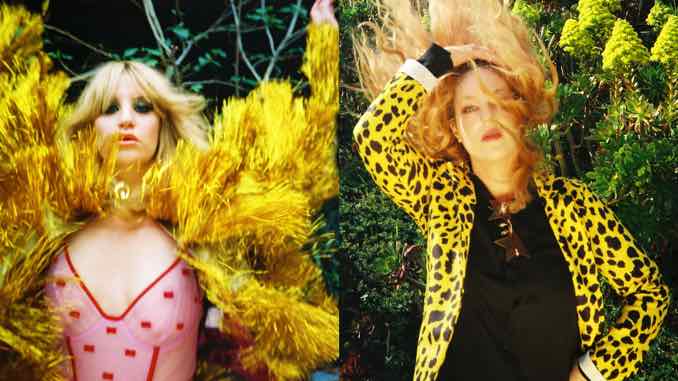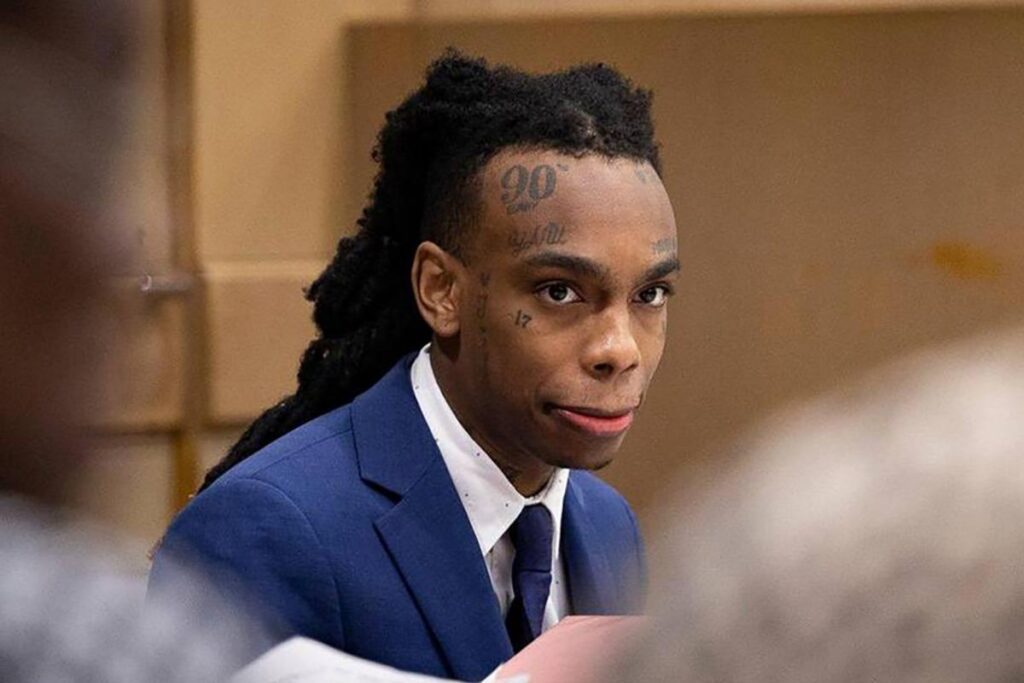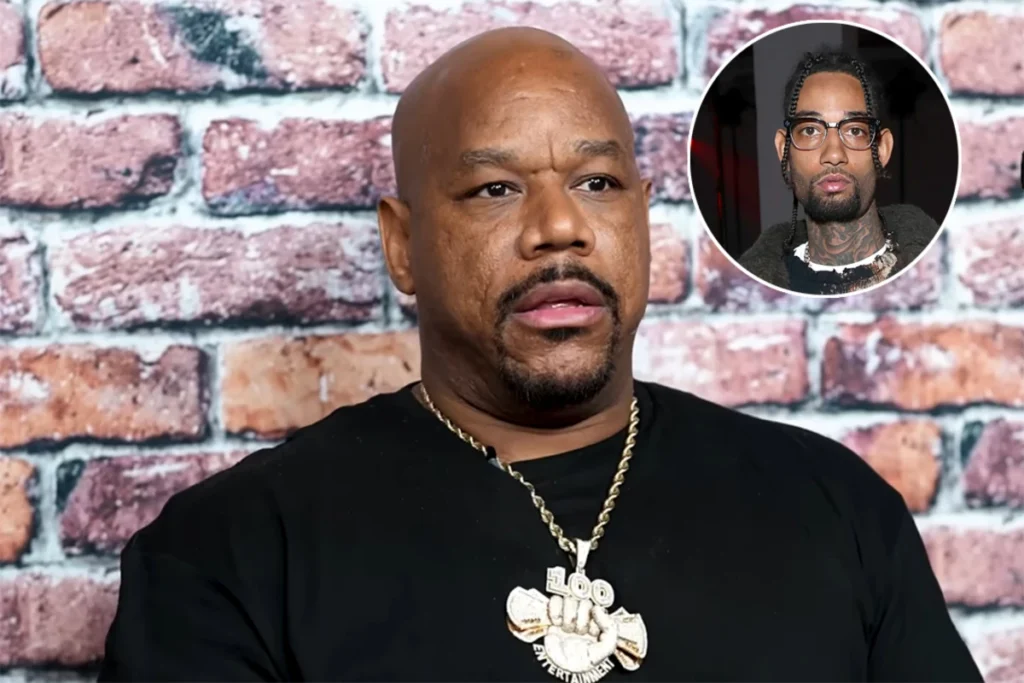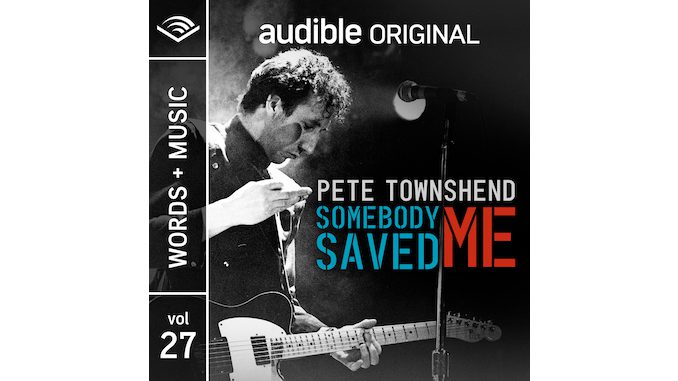Rumors of their demise have been greatly exaggerated, laughingly declare the hard-working ladies of dynamic alt-rock duo Deap Vally, guitarist/vocalist Lindsey Troy and drummer/vocalist Julie Edwards. Ever since their Nick Zinner-produced sophomore set Femejism in 2016—following a much-ballyhooed debut from 2013, Sistrionix—the band has been steadily plotting its comeback, albeit in a much more covert, oblique-strategy fashion. You really had to be paying attention to see the brilliance of their execution, which started at the end of 2019 with Deap Lips, an unexpected, but playfully experimental album-length collaboration with The Flaming Lips. And ever since, they’ve been chiseling away in small, but potent EP increments, beginning earlier this year with Digital Dream—featuring collaborations with Soko (the title track), Jennylee (“Look Away”), and a titanic Peaches/K.T. Tunstall team (“High Horse”)—and leading to today’s (June 18) still wilder American Cockroach follow-up on Cooking Vinyl. Quietly, Troy and Edwards have been testing their creative limits with as many guest stars as they can muster, this time putting Eagles of Death Metal bassist Jennie Vee to work on a blues-trashy “I Like Crime” and plugging the melodic four-string stylings of Savages’ Ayse Hassan into “Better off with Nothing,” a song shot through with piercing ray gun guitar zaps and a tribal-chant chorus. The other two numbers are even more inventive—the garage-retro title track and the funeral keyboard processional “Give Me a Sign,” which passes with the dismal determination of some Carnival of Souls outtake.
“Us doing these collaborations was kind of like our musical rumspringa—you know what I mean?,” says the sharp-witted Troy with a droll chortle. “We’ve always had these tight rules that we would follow with the band, like ‘Just guitar and drums and vocals,’ and everything very rock and riff-oriented, and no co-writing or anything like that. But after our second album, there was kind of like a question mark, as in what was the next step?” They longed to have a third person in the studio to record with, but they had no specific bass player in mind. “So we thought, ‘Hey—let’s just try a collaboration series with our friends,’” she adds. “ And all the rules we ever had went out the window, like genre, minimalism, co-writing and all that. So it was definitely really liberating and fun for us.” Thus, their unlikely fable—which began when the San Fernando natives first hit it off during a shared crochet class—continues, in thoroughly rejuvenated, souped-up fashion.
Paste: Royal Blood just went through a similar two-member renaissance, where they listened to classic AC/DC and its skeletal riffs weaving through tons of dead studio air and felt revitalized.
Julie Edwards: Well, it’s the loud/quiet. The loud/quiet, you know? Because I think when you’re working within the constraints of purely two pieces, we’re a band who’s never played live to tracks or anything, so literally the music is what you get—it’s what can actually occur between just the two of us, and our fingers and our feet and our mouths, you know? So, working within those parameters, you have to use dynamics of louds and quiets—if you’re gonna get loud, you need to have some quiet and space so that you can get there. And I was such a classical music freak for much of my earliest years, so for me, epic-ness only occurs after a moment of relative calm.
Lindsey Troy: And Julie, didn’t you say that as for a drummer, it’s more fun if there’s more space, too? For the drummer to be effective?
Edwards: Yeah, because I think it was always the interplay between what you were doing and what I was doing. I think it was a total dialogue. But with all the co-writes, we really opened it up, so we were no longer limited that way. So we didn’t have to rely on all of the old tricks that we used to compose and write. And also, we had other influences, because the whole approach to the collaboration was for them to be very democratic, and to be feel-good. Not like a tense environment, but just really a relaxed, let-it-flow kind of thing. Don’t get worried about genre—just go. Let it happen,
Troy: And what results is, I guess you could say, the path of least resistance. Whereas Deap Vally before now was like the path of most resistance, the most arduous, muscular, high-intensity approach to writing.
Paste: Just doing due diligence here, but did I hear a child in the background?
Troy: Yeah, you heard my child. I don’t know—maybe Julie’s children, too.
Paste: Some women put music on the back burner to raise families. But you can easily do both, right?
Edwards: Yeah, for sure. I mean, the nature of it changes a little bit, you know?
Troy: Well, because music wants you to be its mommy. So when you are a mom, it becomes difficult, because it’s hard to be a mom to music and to an actual living, breathing human that you’re tasked with keeping alive. So I dunno. I don’t think probably a lot of women who have kids and then have to step away from music, I don’t think that they’re doing it out of an absolute choice. I think it’s probably more out of a … re-shuffle and a necessity based on just how hard it is. Because being a mom is like probably the hardest thing there is in the world to do.
Edwards: Yeah! Of course! But we had all this music that we’d been doing, and we couldn’t wait to release it. And there were times that we were frustrated that we weren’t getting it out sooner. But it just was like the perfect time during the pandemic to have all this amazing music that we made with people we love and respect, and to finally start releasing it.
Paste: So work-wise, when you put Junior down, that’s when you quickly get busy?
Troy: Yeah. But I’m always so tired when I put my baby down. But it’s helpful when I have my mom come into town, and then I’ll be out for a couple of days and I can get a real chunk of time to get work done.
Paste: Since I can hear them, what are your home-life situations?
Troy: I have a one-and-a-half-year-old daughter, and I have a partner—we’re not married.
Edwards: I have a five-year-old, and a baby who will be one in a couple of weeks. And I’m married, but I’ve been married the whole time, to my husband and business partner, Phil Perrone, who I started the Desert Daze Festival with [this October in Pioneertown, California; artists have yet to be announced]. So I’ve had a ring on my finger since the first time we toured.
Paste: One, you said? How scary was it having a child mid-pandemic?
Edwards: Yeah. Leading up to it, it really was terrifying. Because if I had tested positive, they could have taken my infant away from me until I tested negative, twice. So I was really hyper-crazy about not being exposed to anything and wiping down every single grocery item. And I had to admit myself alone, so I had to arrive at the hospital by myself, in labor, and admit myself, and my husband couldn’t join me until I was actually admitted to a room. So it was kind of like a comedy of errors, though—you had to change your own clothes while you’re in labor, and it’s not easy. And I didn’t want anything to touch the ground, because it was early in Covid still, so I couldn’t put my bag down anywhere, and meanwhile I’m having contractions and trying to put this hospital gown on by myself. It was really like a joke. And then they gave me a deep-nasal Covid test in the middle of all that. But I will say that a deep-nasal Covid test is just absolutely nothing compared to labor.
Paste: Did something happen between Digital Dream and American Cockroach? The sonic difference is almost schizophrenic.
Troy:
Digital Dream was kind of like more of the cool color tones—that EP is like blues and greens and more pastel tones. And then American Cockroach is more like red-hot, you know? I dunno. Julie, do you have anything to say to that?
Edwards: Well, I think something we need to mention is that these, as they’re coming out, this not the order in which they were composed and recorded. So really, this is a body of work that we’ve been working on—in some cases—from as far back as 2016. So there’s so much in here, and there are vast expanses of time that are covered. So we have the benefit of sitting down with all these songs and going, “How do these songs talk to each other? How should we group these songs? Who belongs together? Where do they go?” So it’s really been fun and really creative. So I think for our first EP back in a while, we needed it to just be a real surprise. But not so much of a surprise, like with “Give Me a Sign,” you know? We had to ease people into “Give Me a Sign” with some of those other songs. We’ve always been an aggressive, confrontational band, but “Look Away” Is not a confrontational song, “Digital Dream” is not a confrontational song. So we’re easing people in. “Give Me a Sign” is funny, because it was meant to be more fleshed out—we were gonna do more tracking on it, but then Covid hit and we didn’t have an opportunity to get in the studio again. But by then, we were just in love with it.
Paste: What does it mean, lyrically? “I wish I was an animal because things would be simpler.”
Troy: Umm, that song is me dealing with a lot of like, I guess you could say, mental illness-type stuff, and just being a human, and all the thoughts and neuroses that go with that. All the complexity of being a human sometimes is just so challenging, and I just see animals in nature and it’s just so simple, and they look so happy. They just look so at peace, and it’s simple—simple decisions. There was actually a bear that has come into my neighborhood a couple of times.I kept seeing it on the neighborhood Facebook group. He was just going through the trash cans, and it’s come back a few times. I’m not sure what the story was—if it was lost, or an orphan, or maybe it had to do with Covid. There’s a lot I love about living in this modern era, but sometimes I crave just living in a more simple time, a more tribal, prehistoric time, just in touch with nature, like an animal, sort of. I just love that simplicity, because I’m kind of a hippie at heart, I guess.
Paste: Was there a neutral place you met to write and rehearse?
Troy: We live, like, five minutes apart. But Julie, with her pregnancy, was very strict with the quarantining. So we weren’t really seeing each other much. Things are much more relaxed now, so it would be fun to get back in the studio again. But we did write a lot of this material in the studio, so that was something that was different than our other records. And there’s a different sort of freedom when you’re writing in the studio. So most of everything we’re releasing was tracked before the pandemic—we just luckily had all this stuff. But of course, for mixing, that was all done over email. But it is kind of a beautiful thing now, because you can work with people who are anywhere in the world.
Paste: I was watching Queen of Outer Space, a 1958 film on TCM. And these astronauts who were marooned on Venus, a planet of only women, were talking, and one suspected that the laser beam that knocked them off-course originated from that planet. “Oh, come off it! How could a bunch of women invent a gizmo like that?” another one argues. And another one chimes in with, “Sure! Even if they invented it, how would they know how to run it? You know how women drivers are!” And I thought, “Whoa! Was it really that bad, just a few years ago?”
Troy: Oh yeah. For sure. And this is so brutal, but one time I tried watching The 40-Year-Old Virgin with my boyfriend’s family. And I said, “Oh yeah—this one of my favorite movies!” Let me tell you—it did not hold up after the #MeToo movement. It was a different time, let me tell you. And how about Blade Runner? That was my favorite movie, but now we need to do a re-edit, because we can’t have him forcibly kissing or slapping Sean Young. But I know that’s the history of cinema—just men forcibly kissing a woman who slaps them. But they’re in love, you know?
Paste: Have you ever experienced anything that knuckleheaded in the music biz as a duo?
Troy: Sometimes we feel like … maybe. But I dunno. Our first record was out on a major label, and so the experience with that was them trying to be a bit more controlling and get involved in our process, which was really annoying for us and stressful. And at the same time, we had some friends in other bands that didn’t have to deal with that, so we wondered, “Is that because we’re women? Or is that just a coincidence?” It was just like … heavy A&R-ing, which we weren’t open to at that time. Like wanting us to co-write with people when we didn’t want to co-write yet. So maybe we were too stubborn—I don’t know for sure. But it was so pure at that moment, we were like, “Just let us do our thing! People like what we’re doing—just let us do it.” We had such a strong creative vision, and we were so inspired, so it was like, why mess with that, you know? But it was like them just controlling their investment, and that probably happens to a lot of bands.
Edwards: Like, I was already in my 30s when we were on that label. But we were always just called “The girls”—“The girls this,” and “The girls that.” And that’s so weird, especially when it’s coming from a man who’s younger than you. And then we had a couple of kinda sketchy experiences on one music video shoot, and one photo shoot. And then there’s the thing where I would walk into a venue, and they would say, “Oh, you’re the singer?” And I’d be like, “No.” But I don’t think of that as sexism—it’s more that just obviously people come to everything with their own set of assumptions. But I don’t think we’ve really experienced a lot of overt sexism really at all, considering how long we’ve been at it.
Troy: Yeah. But I feel that the most overarching form of sexism there is, though, is just that, by you being a female rock band, you’re already put in this niche. It’s niche—that’s the thing. So there’s not as many spaces. Like you get put on the Women in Rock and Roll playlist—that type of thing. And with labels and management and the industry, their outlook used to be—and I dunno, maybe this is changing—but their outlook was like, “Oh, I already have a girl band. I can’t take on another one.” But meanwhile, how many guy bands do you have? It’s like they look at the playlist, too, and go, “Oh, we already have one female rock band on this playlist. We don’t have room for another.” So it’s like there are only so many spots reserved for that, so that is the main sexist thing we’ve dealt with, which may just be the nature of rock and roll, or it traditionally feeling like a man’s world or something. So I think that’s probably been the most frustrating aspect for us.
Paste: Between 2016 and now, was there ever a moment when you considered quitting?
Troy: Hmm-mm. No. It’s just about finding ways to keep it fresh and fun, you know? Because it’s like, we’re just two people. We’ve been in a band now for almost a decade, and it can get tense. So it’s in finding ways to reinvent it, to keep it fresh and fun. And that’s where these collaborations were really a great and fun thing for us to do. So for sure it’s been a minute since we’ve had stuff out. But that’s why we’re so excited to finally be putting this new music out.




